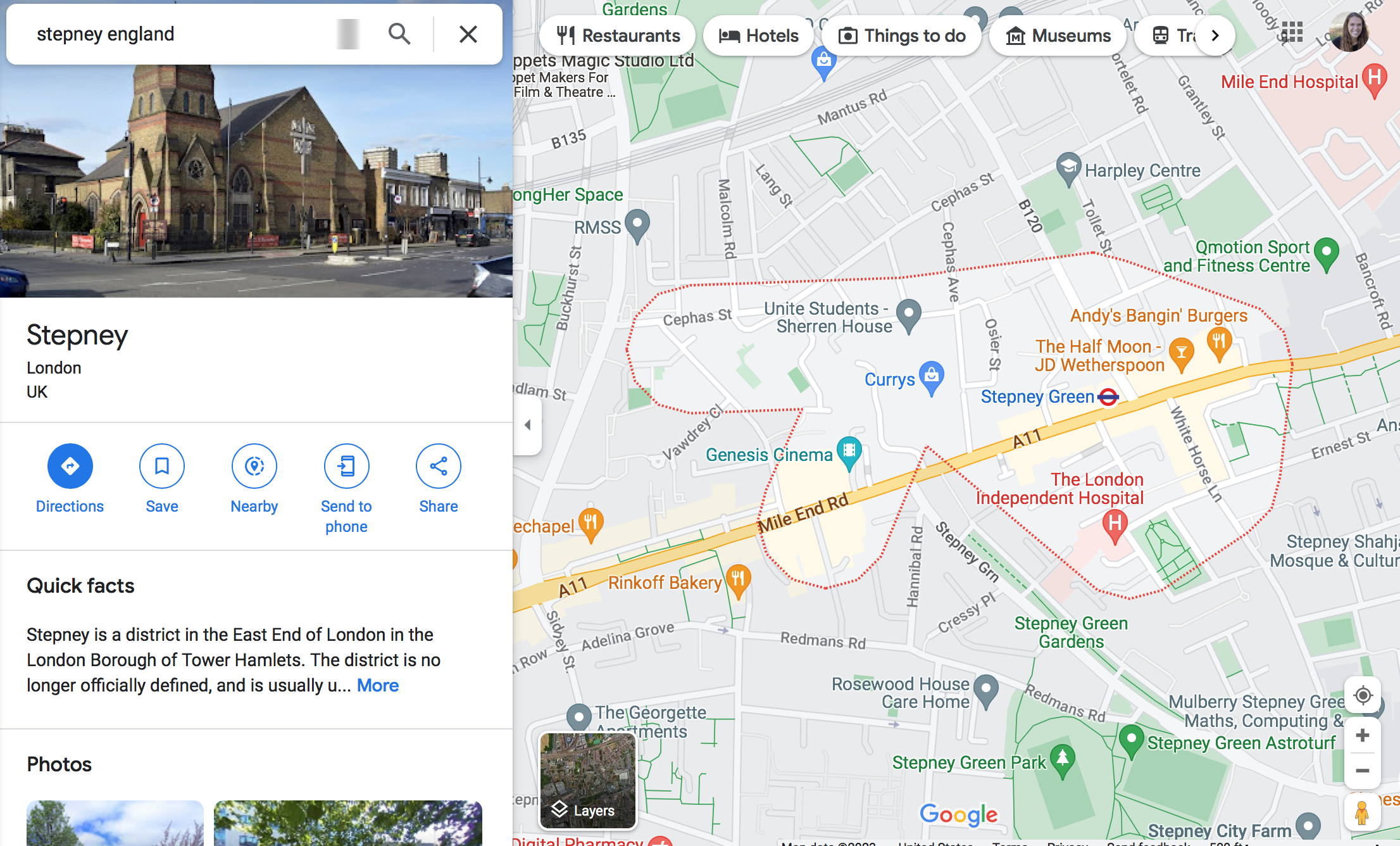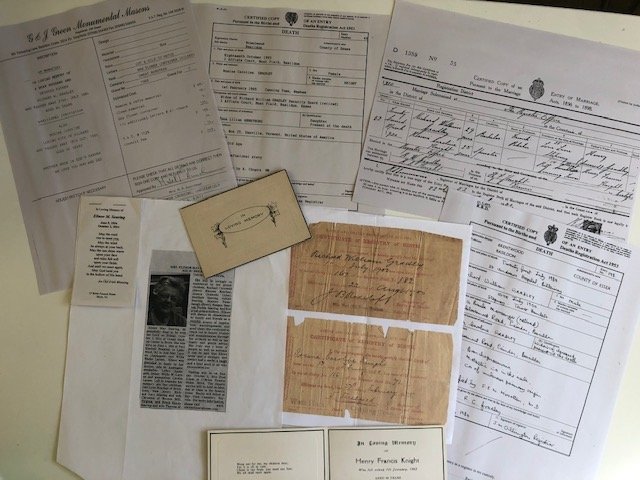How to Plan the ULTIMATE Family History Trip
by Shenley Puterbaugh
On my family history trip to England with my husband and 2 children (ages 7 and 8) in 2018, we found my great grandparents grave through much effort. My great grandma’s name was Rose which is my middle name and which is the middle name we gave my daughter. We brought a red (her favorite color) rose to put on her grave.
Do you want to go on a meaningful trip? One that will be fun and exciting? A trip that will change your life and the lives of your children, grandchildren and posterity? If so, then a family history trip is for you! Whether you are traveling by yourself or with other family members you can make it memorable and get the most out of it with these tips for before, during and after your trip!
Before your trip:
Preparing is the key to the success of your trip. If you take the time to plan and prepare, you will make the best use of your time while you are traveling.
I searched on GoogleMaps for the places my ancestors lived, went to church, were buried, worked, etc.
Documents I searched for places I could visit and experiences I could have that would help me learn about my ancestors
Choose an ancestral location
Where did most of your ancestors live?
Where do you feel most connected?
Make a list of towns or cities to visit
Write down each person or event that is connected to that place. Who was born lived or died in each town or city?
This will help you know where to focus your travel. Focus on the places that have the most ancestors or events that took place there or the places that are most significant to your family.
Be a detective
Search all of the records that you have (and even look for more) for information that will help you find places to visit
Addresses > census, death records
Churches > marriage, christening records, obituaries
Cemeteries and burial plots > death certificates, FindAGrave.com, BillionsGraves.com
Schools and universities > obituaries, online yearbooks, check the towns where they lived
Careers and hobbies > obituaries, census records
Dig Deeper
Google Maps - check the addresses of ancestral homes, churches or schools
Historical museums - learn and understand what local events your ancestors experienced and what life may have been like for them
Living museums - recreate historical settings and experiences to replicate a period of time when your ancestors were living
Genealogical societies - may have records or information on your family that has not been put online yet
Local libraries - books about the area when your ancestors lived there or even books that mention your family
Contact in advance
Historical museums, genealogical societies, local libraries, churches, cemeteries, universities, schools
Let them know you are coming and ask them if they have any information on your ancestors
Set up appointments if necessary
Ask if they know any local people with ancestors surnames
Ask if their records have been put online
Get organized
Create a document
Organize all of the possible places you can visit by location and ancestor
Plan your trip
Find out and incorporate the priorities of fellow travelers
Make a schedule
Include time for relaxing, sightseeing and unplanned opportunities
Plan generations projects
Organize
Create a small binder that you take everywhere with you that includes copies of photos, stories, maps and parts of your family tree to look at or share with your family along the way
Learn about local history
Knowing as much as you can before will make being there more meaningful
During your trip:
Document your experience
Take pictures and videos
Journal, blog, social media posts
Update family tree with findings
Be flexible
Be ready for the unexpected: fatigue, sickness, need for fun, unplanned opportunity
Extras
Bring money for local treasures and books you find
Make copies or take pictures of everything
Think about bringing a portable scanner or downloading a scanning app on your device
We found the building where my grandparents were married and brought a picture of their wedding day with us.
We met my grandma’s brother (in England) for the first time. The stories I heard from him about my great grandparents (his parents) were completely different from the ones my grandma (his sister) had told me.
After your trip:
Stay in touch with people you meet
Relatives
Helpful people that you may want to ask questions in the future
Record your experiences
If you didn’t have time on your trip, journal or blog about your experiences
Digitize everything you found
Documents, photos and stories
Upload to your online family tree
Share what you saw, experienced and learned
Get together with family and tell them or do a presentation about your trip
Write on a blog or do social media posts about your trip and your findings




